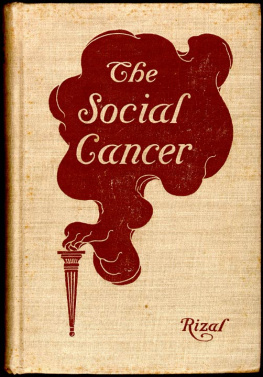Charles Lemert - Social Things
Here you can read online Charles Lemert - Social Things full text of the book (entire story) in english for free. Download pdf and epub, get meaning, cover and reviews about this ebook. year: 2011, publisher: Rowman & Littlefield Publishers, genre: Politics. Description of the work, (preface) as well as reviews are available. Best literature library LitArk.com created for fans of good reading and offers a wide selection of genres:
Romance novel
Science fiction
Adventure
Detective
Science
History
Home and family
Prose
Art
Politics
Computer
Non-fiction
Religion
Business
Children
Humor
Choose a favorite category and find really read worthwhile books. Enjoy immersion in the world of imagination, feel the emotions of the characters or learn something new for yourself, make an fascinating discovery.
- Book:Social Things
- Author:
- Publisher:Rowman & Littlefield Publishers
- Genre:
- Year:2011
- Rating:3 / 5
- Favourites:Add to favourites
- Your mark:
- 60
- 1
- 2
- 3
- 4
- 5
Social Things: summary, description and annotation
We offer to read an annotation, description, summary or preface (depends on what the author of the book "Social Things" wrote himself). If you haven't found the necessary information about the book — write in the comments, we will try to find it.
Social Things — read online for free the complete book (whole text) full work
Below is the text of the book, divided by pages. System saving the place of the last page read, allows you to conveniently read the book "Social Things" online for free, without having to search again every time where you left off. Put a bookmark, and you can go to the page where you finished reading at any time.
Font size:
Interval:
Bookmark:


Published by Rowman & Littlefield Publishers, Inc.
A wholly owned subsidiary of The Rowman & Littlefield Publishing Group, Inc.
4501 Forbes Boulevard, Suite 200, Lanham, Maryland 20706
http://www.rowmanlittlefield.com
Estover Road, Plymouth PL6 7PY, United Kingdom
Copyright 2012 by Charles Lemert
Cover image: Workers clean the oil washed ashore from the BP Deepwater Horizon spill at the beach of Gulf Shores, southern Alabama, June 6, 2010. Zhang Jun/ Xinhua Press/Corbis
All rights reserved. No part of this book may be reproduced in any form or by any electronic or mechanical means, including information storage and retrieval systems, without written permission from the publisher, except by a reviewer who may quote passages in a review.
British Library Cataloguing in Publication Information Available
Library of Congress Cataloging-in-Publication Data
Lemert, Charles C., 1937
Social things : an introduction to the sociological life / Charles Lemert. 5th ed.
p. cm.
Includes bibliographical references and index.
ISBN 978-1-4422-1162-9 (pbk. : alk. paper) ISBN 978-1-4422-1163-6 (electronic)
1. Sociology. 2. SociologyHistory. I. Title.
HM435.L46 2012
301dc23
2011019792
 The paper used in this publication meets the minimum requirements of American National Standard for Information SciencesPermanence of Paper for Printed Library Materials, ANSI/NISO Z39.48-1992.
The paper used in this publication meets the minimum requirements of American National Standard for Information SciencesPermanence of Paper for Printed Library Materials, ANSI/NISO Z39.48-1992.
Printed in the United States of America
For
SANG-JIN HAN
No one I know lives the sociological life more fully.
And, in memory of
CHET MEEKS (19732008)
He lived so well and died far too soon.

W HEN Social Things was first published late in the 1990s, it was already clear that something fundamental had changed in the structures of social things. These, if you can believe it, were the days when the Internet and e-mail were still relatively new; when personal computers were still clumsy and slow. Facebook and Twitter did not exist. It was early in the dawning awareness that globalization was changing everything for better or worse. In the 1990s America and Europe were enjoying a healthy measure of economic prosperity that some attributed to the triumph of capitalism after the end of the cold war in 1991. In the last decade of the twentieth century the wealthy world experienced itself as good and getting better.
The fifth edition of Social Things celebrates, if such a word can be used in these times, the fifteenth anniversary of its first appearance. We are now in the 2010s of a new century. Some things are better; many things are worse; most social things are more difficult to figure out. Yes, on the one hand, those bulky computers are now packed into handheld devices that are so much more than smart phones as to be some new kind of electronic miracle. The Internet is in fact quickly replacing the telephone as a convenient means of long-distance communication as social networks, texting, skyping become the norm. My now thirteen-year-old daughter (not yet born when this book first appeared) uses Skype to talk to her friends a few blocks away as I, when eventually I master this tool, will join my friends in Europe, China, and Australia in visual conversations. There are other good things in our world today, to be sure. But when one looks back at the wish lists of the 1990s, so much of what was taken as fixed or settled has melted away.
September 2001 was the first blow to the short-lived prospects of a good and stable free world. After 9/11, the powerful, traditionally white nations found themselves objects of hatred among people in parts of the world they hardly understood. Their reflex was old and worn. Some of them went to war in Iraq, then Afghanistan. The United States drained its financial reserves in wars that long years later offered scant justification for their human and economic costs. In the fifteen years since this book was born, the wealthy grew wealthier, but smaller in number relative to the massive number of impoverished, ill, starving babies and their families across the globe. And so on.
Social things are still real. People still live with others in villages, towns, and nations even as the territorial and electronic borders of these places resist official attempts to keep them closed to new faces and ideas. Yet, social things remain the structuring surface on which we live with others as best we can.
As the world around has changed in the relatively short history of this book, so too has the book itselfas indeed any book that aims to make sense of social things must. All the basic elements of the previous editions remainthe stories, the histories, the concepts, and much else. Yet, over the years new material has entered pretty much of necessity. There is now a chapter on global methods, followed by one, new to the 2012 edition, on the global environment. In various places, the idea of sociological incompetence has crept in to stand by and in contrast to sociological competence. This innovation was originally inspired by the structural and political incompetence of the governments response to the devastation of Hurricane Katrina in 2005. It recurs in this edition which has had to face the realities of still another Gulf of Mexico disaster, the oil spill of 2010. These events, among others, were only partly natural disasters in their origins or consequences. Careless, even greedy, social interests made both the floods and pollution worse. Then in 2011, another natural disaster, the tsunami in Japan exposed the social dangers of deriving energy from ill-protected and insecure nuclear power plants. As a result, now in the 2010s, the worlds of social things must face up to their abuses of the natural worlds about.
Social Things, the book, was never intended to be a wet blanket on what fun and pleasure there can be in life with others. Very much remains that is good for life of all kinds. Whenever creative creatures like some plants, many animals, and the average human being survive over time, then new life can and will emerge. What we have now are troubles that may always have been there, just below our shared reluctance to see them. The difference is that now we cannot ignore them.
When C. Wright Mills coined the idea of the sociological imagination, he meant to say that individuals must get out of their embodied lives and imagine the wider world of social structures that may better account for their successes and failures. That principle stills stands. The difference now is that we who live amid and against social things must now imagine a wider, more global, even more natural world of actors and beings than before. Still this is a hopeful even happy prospect. We are competent unto the effort. But, as before, we must surprise ourselves by reaching deep into the recesses where the practical possibilities of social life lie hidden, untapped, ready to be exercised.
Charles Lemert
New Haven, Connecticut

J UST AROUND the corner from an apartment we once had in Brooklyn there was a small deli we visited for milk and the morning papers. The owner kept such long hours that we could drop in late Saturday evenings for the early sections of the Sunday
Font size:
Interval:
Bookmark:
Similar books «Social Things»
Look at similar books to Social Things. We have selected literature similar in name and meaning in the hope of providing readers with more options to find new, interesting, not yet read works.
Discussion, reviews of the book Social Things and just readers' own opinions. Leave your comments, write what you think about the work, its meaning or the main characters. Specify what exactly you liked and what you didn't like, and why you think so.








